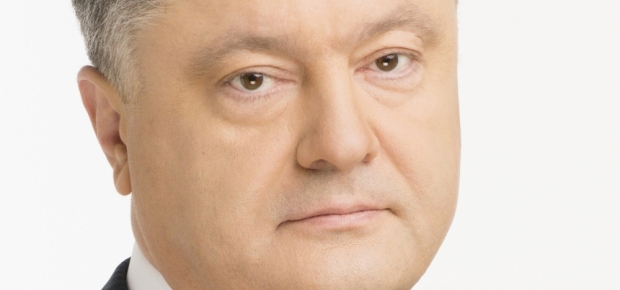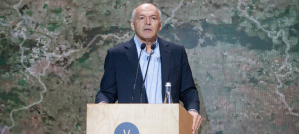Petro POROSHENKO

Petro Poroshenko is the President of Ukraine, elected at the early presidential elections
on May 25, 2014. As President, he took the oath to the people of Ukraine on June 7,
2014.
Petro Poroshenko was born in the city of Bolhrad, Odesa region, on September 26, 1965.
From 1982 to 1989, he studied at Taras Shevchenko National University at the Faculty
of International Relations and International Law form which he graduated with a Diploma
in International Economic Relations. From 1984 to 1986, Mr. Poroshenko did military
service.
From 1989 to 1992, he worked as a postgraduate student assistant of the Department
of International Economic Relations at Taras Shevchenko National University of Kyiv.
From 1993 to 1998, Petro Poroshenko served as CEO of corporation group
"Ukrprominvest".
In 1998, he embarked on a government services career, was first elected as a Member
of the Parliament of Ukraine. In 2000, he became Deputy Head of the National Bank
Council of Ukraine, and later he was Head of the Committee on Budget Issues
of the Parliament.
In 2005, Petro Poroshenko served as Secretary of the National Security and Defense
Council of Ukraine, and then again he was elected as Member of the Parliament
of Ukraine and, from 2006 to 2007, leaded Committee on Finance and Banking Activity
of the Parliament of Ukraine.
In 2009, he was appointed Minister of Foreign Affairs of Ukraine and in 2012 - Minister
of Economic Development and Trade of Ukraine. The same year, he served as Member
of the Parliament and Co-Head of the Committee on Parliamentary Cooperation
between Ukraine and the EU. In 2007-2012, Mr. Poroshenko was the Head of the
National Bank Council of Ukraine.
Petro Poroshenko is honored economist of Ukraine, laureate of the State Prize of Ukraine
in the sphere of science and technology, laureate of P. Orlyk international prize, holder
of the Grand Cross Order of Civil Merit of the Kingdom of Spain. Mr. Poroshenko is a Ph.D
in Law.


